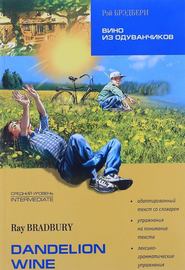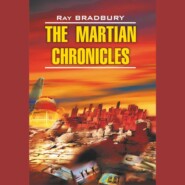По всем вопросам обращайтесь на: info@litportal.ru
(©) 2003-2024.
✖
I Sing the Body Electric
Автор
Год написания книги
2018
Настройки чтения
Размер шрифта
Высота строк
Поля
“Get free time on TV?”
“No.”
“Be interviewed on radio?”
“No!”
“Like to have trials and lawyers arguing whether a man can be tried for proxy-murder…”
“No!”
“…that is, attacking, shooting a humanoid machine…”
“No!”
Booth was breathing fast now, his eyes moving wildly in his face. Bayes let more out:
“Great to have two hundred million people talking about you tomorrow morning, next week, next month, next year!”
Silence.
But a smile appeared, like the faintest drip of saliva, at the corner of Booth’s mouth. He must have felt it. He raised a hand to touch it away.
“Fine to sell your personal true real story to the international syndicates for a fine chunk?”
Sweat moved down Booth’s face and itched in his palms.
“Shall I give you the answer to all, all the questions I have just asked? Eh? Eh? Well,” said Bayes, “the answer is—”
Someone rapped on a far theater door.
Bayes jumped. Booth turned to stare.
The knock came, louder.
“Bayes, let me in, this is Phipps,” a voice cried outside in the night.
Hammering, pounding, then silence. In the silence, Booth and Bayes looked at each other like conspirators.
“Let me in, oh Christ, let me in!”
More hammering, then a pause and again the insistent onslaught, a crazy drum and tattoo, then silence again, the man outside panting, circling perhaps to find another door.
“Where was I?” said Bayes. “No. Yes. The answer to all those questions? Do you get worldwide TV radio film magazine newspaper gossip broadcast publicity…?”
A pause.
“No.”
Booth’s mouth jerked but he stayed silent.
“N,” Bayes spelled it, “O.”
He reached in, found Booth’s wallet, snapped out all the identity cards, pocketed them, and handed the empty wallet back to the assassin.
“No?” said Booth, stunned.
“No, Mr. Booth. No pictures. No coast-to-coast TV. No magazines. No columns. No papers. No advertisement. No glory. No fame. No fun. No self-pity. No resignation. No immortality. No nonsense about triumphing over the dehumanization of man by machines. No martyrdom. No respite from your own mediocrity. No splendid suffering. No maudlin tears. No renunciation of possible futures. No trial. No lawyers. No analysts speeding you up this month, this year, thirty years, sixty years, ninety years after, no stories with double spreads, no money, no.”
Booth rose up as if a rope had hauled him tall and stretched him gaunt and washed him pale.
“I don’t understand. I—”
“You went to all this trouble? Yes. And I’m ruining the game. For when all is said and done, Mr. Booth, all the reasons listed and all the sums summed, you’re a has-been that never was. And you’re going to stay that way, spoiled and narcissistic and small and mean and rotten. You’re a short man and I intend to squash and squeeze and press and batter you an inch shorter instead of force-growing you, helping you gloat nine feet tall.”
“You can’t!” cried Booth.
“Oh, Mr. Booth,” said Bayes, on the instant, almost happy, “I can. I can do anything with this case I wish, and I wish not to press charges. More than that, Mr. Booth, it never happened.”
The hammering came again, this time on a locked door up on the stage.
“Bayes, for God’s sake, let me in! This is Phipps! Bayes! Bayes!”
Booth stared at the trembling, the thundershaken, the rattling door, even while Bayes called very calmly and with an ease that was beautiful:
“Just a moment.”
He knew that in a few minutes this calm would pass, something would break, but for now there was this splendidly serene thing he was doing; he must play it out. With fine round tones he addressed the assassin and watched him dwindle and spoke further and watched him shrink.
“It never happened, Mr. Booth. Tell your story, but we’ll deny it. You were never here, no gun, no shot, no computerized data-processed assassination, no outrage, no shock, no panic, no mob. Why now, look at your face. Why are you falling back? Why are you sitting down? Why do you shake? Is it the disappointment? Have I turned your fun the wrong way? Good.” He nodded at the aisle. “And now, Mr. Booth, get out.”
“You can’t make—”
“Sorry you said that, Mr. Booth.” Bayes took a soft step in, reached down, took hold of the man’s tie and slowly pulled him to his feet so he was breathing full in his face.
“If you ever tell your wife, any friend, employer, child, man, woman, stranger, uncle, aunt, cousin, if you ever tell even yourself out loud going to sleep some night about this thing you did, do you know what I am going to do to you, Mr. Booth? If I hear one whisper, one word, one breath, I shall stalk you, I shall follow you for a dozen or a hundred or two hundred days, you’ll never know what day, what night, what noon, where, when or how but suddenly I’ll be there when you least expect and then do you know what I am going to do to you, Mr. Booth? I won’t say, Mr. Booth, I can’t tell. But it will be awful and it will be terrible and you’ll wish you had never been born, that’s how awful and terrible it will be.”
Booth’s pale face shook, his head bobbed, his eyes peeled wide, his mouth open like one who walks in a heavy rain.
“What did I just say, Mr. Booth? Tell me!”
“You’ll kill me?”
“Say it again!”
He shook Booth until the words fell out of his chattered teeth:
“Kill me!”

















